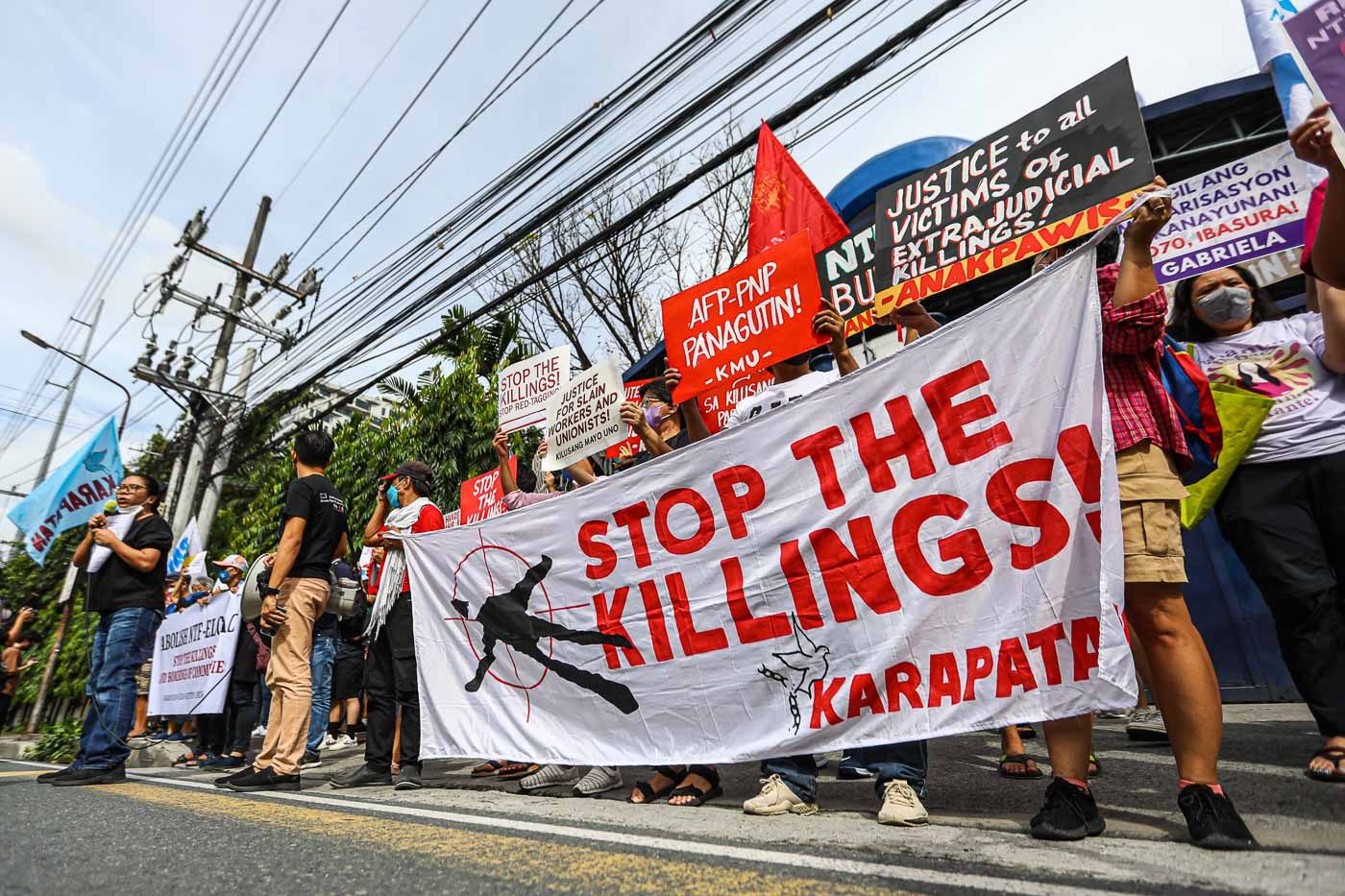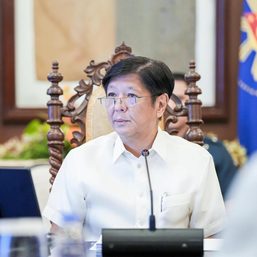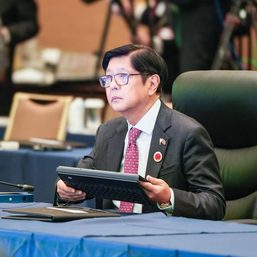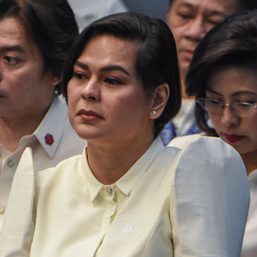SUMMARY
This is AI generated summarization, which may have errors. For context, always refer to the full article.

MANILA, Philippines – Opposition lawmakers on Wednesday, October 11, criticized the decision of the House of Representatives to realign confidential funds to agencies that they say are “notorious for their involvement in human rights violations.”
The chamber on Tuesday, October 10, announced that the proposed confidential funds from five government agencies – including the Sara Duterte-led Department of Education and Office of the Vice President – would be reallocated to other government bodies involved in asserting the country’s rights in the West Philippine Sea amid rising tensions with China.
These agencies include the National Intelligence Coordinating Agency (NICA), which will get secret funds worth P127.41 million, and the National Security Council (NSC), with P220 million.
“Such a realignment is a new record high for NICA whose confidential funds are normally just P1 million a year,” House Deputy Minority Leader France Castro of ACT Teachers said. “The NSC’s confidential funds almost doubled from P120 million.”
“These record-breaking increases in the confidential funds of these two agencies do not bode well for human rights in the country where we can note the increasing harassment, abduction, and killing of activists in recent months,” she added.
Kabataan Representative Raoul Manuel expressed fears that the funds would “be used for the faulty whole-of-nation approach to counter-insurgency.”
The NSC is currently the secretariat of the National Task Force to End Local Communist Armed Conflict, whose high-ranking officials – such as its former spokesperson Lorraine Badoy – have been on the receiving end of complaints for red-tagging rights defenders and concerned citizens.
The NSC in July last year said that it would be “more cautious” with its approach to dealing with insurgency. Meanwhile, NICA Director General Ricardo de Leon previously claimed that state forces do not participate in red-tagging.
In a statement in March, Amnesty International noted the rampant practice of linking activists, rights defenders, and government critics to local communist groups by the administration’s agencies as well as pro-state groups. The organization called on the Philippine government officials to end the harassment and intimidation of activists and human rights defenders, and put a stop to red-tagging as it risks the lives and safety of these individuals.
“While public funds should not end up in corruption, neither should they be used for bullets, bombs, and espionage against fellow Filipinos. Protecting our territory, including the West Philippine Sea, shouldn’t be a gateway for confidential funding for state terror,” Manuel said.
Castro pointed out that NICA and NSC benefited more from the realignment of funds than the Philippine Coast Guard and the Bureau of Fisheries and Aquatic Resources, which “are the primary ones facing Chinese ships in the West Philippine Sea.”
Under the House version of the 2024 spending plan, PCG would get a P200-million confidential fund for intelligence activities and ammunition, while BFAR’s maintenance and other operating expenses would get a P30-million increase.
Makabayan lawmakers also noted that the confidential funds to be reallocated – totaling P1.23 billion – make up only 12% of the P10.1 billion in proposed secret funds contained in the 2024 budget bill.
The Office of the President (OP) is seeking P2.25 billion in confidential funds and P2.3 billion in intelligence funds, amounting to 45% of the entire administration’s proposed secret funds.
Former Bayan Muna Representative Carlos Zarate noted that the request is “already redundant since all executive agencies with security mandate and with [confidential funds] budget are already under the OP.” – Rappler.com
Add a comment
How does this make you feel?










There are no comments yet. Add your comment to start the conversation.